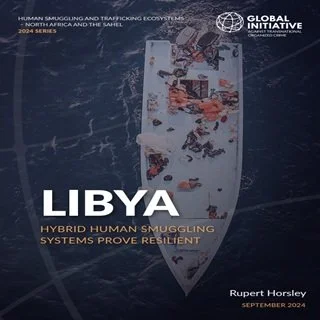By Aşkım Beste Özdoğan
The history of Haiti reflects a journey filled with various challenges from the colonial period to the present day. The process that began with Christopher Columbus’s arrival in 1492 continued under Spanish colonialism. Subsequently, in the early 17th century, the French settled on the island, seizing the western half of Hispaniola in 1697. The slave trade became the main factor shaping the island’s economy, and Haiti became one of France’s most important colonies. However, following slave uprisings and the Haitian Revolution (1791- 1804), which led to Haiti’s declaration of independence in 1804, a historical turning point occurred. This revolution was significant both as the successful uprising by the world’s first black slaves to abolish slavery and as an inspiration for independence struggles in Latin America. However, post-independence Haiti faced a series of problems such as internal turmoil, external interventions, and political instability. This historical background provides a fundamental basis for understanding Haiti’s current political, economic, and social dynamics. Haiti has long struggled with poverty, external interventions, coups, and economic issues. Additionally, it grapples with significant natural disasters such as the 2010 earthquake, environmental problems, and poor social services and infrastructure. There are numerous obstacles to the country’s development and progress. Since the beginning of 2021, a new battleground has emerged: Gang Violence. In 2021, then-President Jovenel Moïse was assassinated by foreign mercenaries alleged to be Colombian. Following this pivotal moment, armed gang attacks and violent incidents have rapidly increased nationwide. Additionally, Ariel Henry is not actually an elected leader. He was selected as the next President of Haiti by Moïse just two days before Moïse’s assassination in 2021. Henry’s swearing in as Prime Minister with the support of the international community has influenced the controversial process in the country and exacerbated the situation. Rising prices, inflation, and crumbling infrastructure in Haiti have posed significant obstacles to Henry’s consolidation of authority. Analysis of data from the United Nations on March 14, 2024, reveals that more civilians were killed in Haiti in the first four months of 2023 than in Ukraine (World Food Program USA, 2024). The most significant consequences of this conflict have been devastating hunger and displacement. Gang violence continues to escalate in 2024; particularly, the prison raid in March has escalated political instability and violence to a new level. It is observed that civilians are being killed, displaced, subjected to hunger, and exposed to violence on a daily basis nationwide. The international community’s response, which goes beyond condemnation, is noteworthy. Haiti has been a country in chaos for years, and the situation has worsened with the 2021 presidential assassination. Especially, the Port-au-Prince Prison raid in February 2024, while Prime Minister Henry was out of the country, is crucial in understanding the level of violence and the power of gangs in the country. Escaped prisoners and armed gangs roam the city, killing civilians. This analysis seeks to answer two important questions: What is happening in Haiti? What is the reason behind the recent surge in violence in Haiti, the poorest country in the Western Hemisphere?
Istanbul: DİPAM, Center for Diplomatic Affairs and Political Studies, 2024. 12p.



